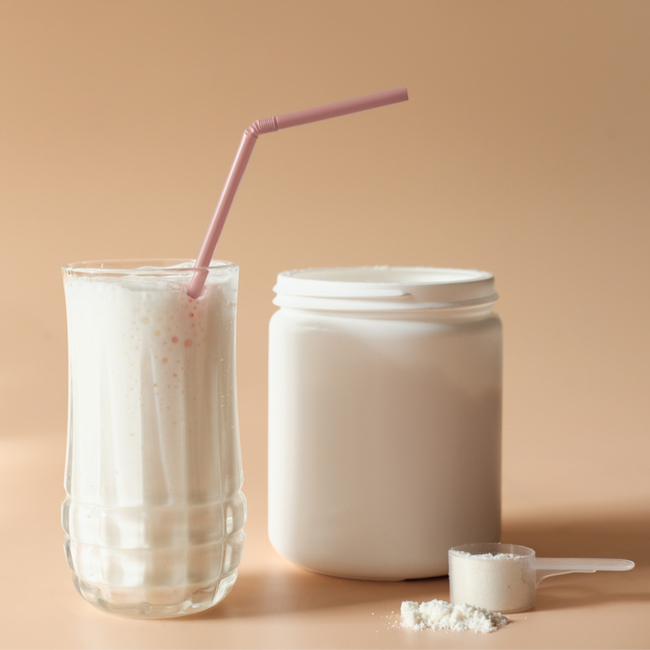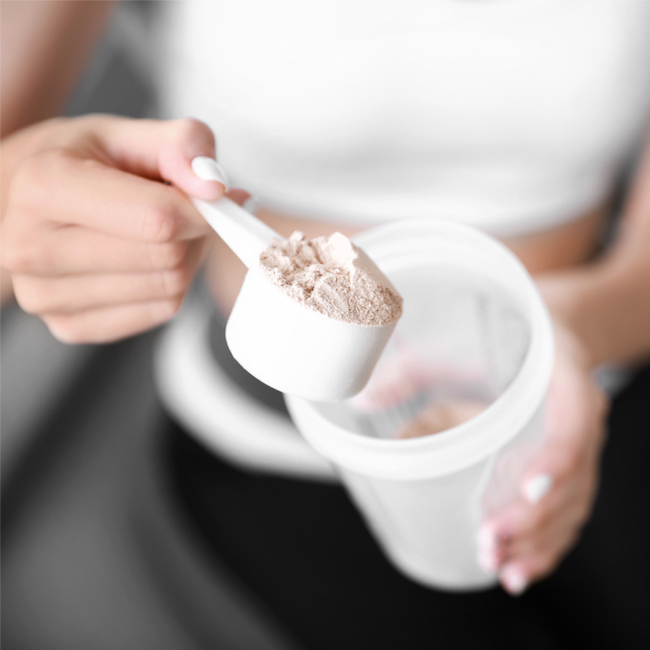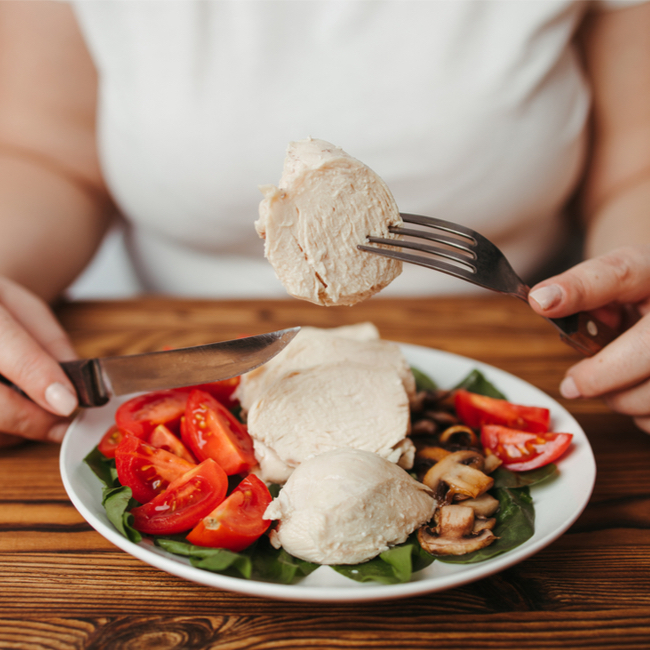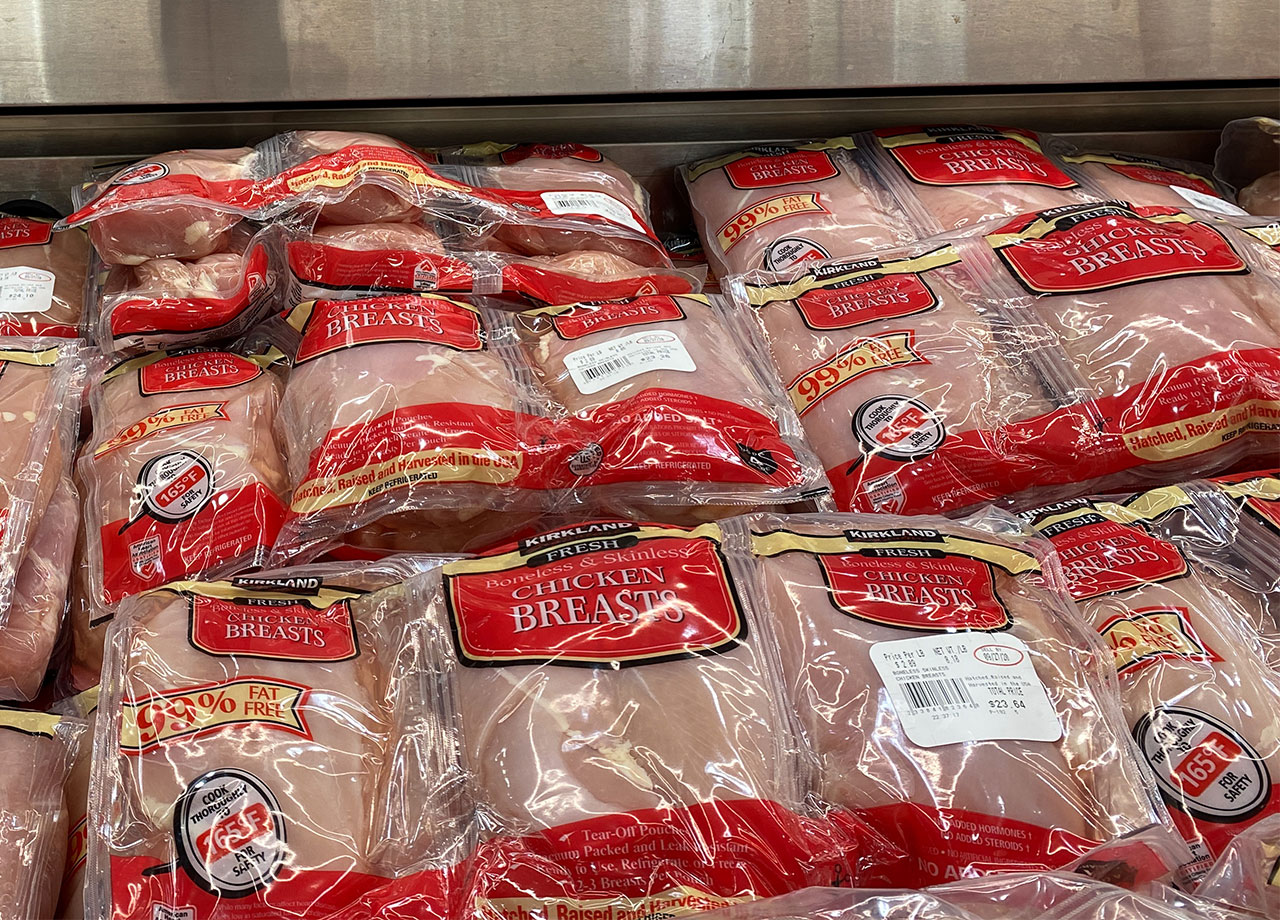This is an archived article and the information in the story may be outdated. Please check the time stamp on the story to see when it was updated last.
Protein is well-known for being one of the essential macronutrients needed within any well-balanced diet to help achieve healthy weight loss. Fueling your muscles and even boosting your metabolism, protein is generally useful for keeping you full after meals, naturally managing overeating and helping to create a maintainable calorie deficit.
However, while many lean protein sources, such as chicken and fish, act as the cornerstone of a balanced diet, there are some protein sources which can actually bring forth bloating and even weight gain in the body when consumed regularly. In order to craft a diet filled with natural protein that can help to boost your health rather than bog it down, there’s one protein source that experts say should be left out of your diet.


Although they can be useful for athletes looking to load up on protein after a difficult workout, protein powders are generally not the best addition to your eating habits if you’re looking to eliminate bloating and lose weight with ease. While they do provide a highly concentrated volume of protein, these powders are also often packed with artificial sweeteners and ingredients which can cause irritation and discomfort in the stomach.
“It's quite common for people to experience bloating from protein powders such as whey or soy, as these can be difficult to digest,” notes Jessica Sepel, nutritionist and founder of JSHealth Vitamins. As we grow older, it becomes increasingly difficult for our body to metabolize dairy products, and as dairy is a major ingredient in whey protein powder, this can invoke the uncomfortable side effects of lactose intolerance.
When it comes to losing weight, many people use protein shakes as meal replacement options which can have a variety of negative effects on the body, starting with too dramatic of a calorie deficit, and ending in their lack of nutrients other than protein. Many protein shake options are also high in sugar, which has been determined as a well-known cause of weight gain.
“Additionally, protein powders are often high in protein but low in carbs. This imbalance of macronutrients can be additionally challenging for the body to metabolize and thus digest,” explains Katherine Metzelaar, MSN, RDN, CD and Certified Intuitive Eating Counselor. “If you are having a protein drink, I would suggest having a carbohydrate snack with it such as a piece of toast.”

In general, sticking to more natural protein sources such as lean meats, beans, nuts and seeds is going to provide your body with a wider range of nutrients which can contribute to healthy weight loss. Protein is undoubtedly essential to the body for building muscle and increasing your metabolism, but overdoing it on any nutrient is going to cause more harm than good to the body, and particularly if you’re consuming whey protein you may find this drink is the primary cause of bloating, distention, and gas.
However, if you do find it difficult to reach your protein intake goals, there are still variations of protein powder which can fit well within any diet that don’t cause irritation. “We recommend replacing basic protein powder formulas with a plant-based protein powder with added probiotics to support healthy digestion,” says Metzelaar. “Making sure to drink enough water with your protein powder is also a good place to start, in addition to assuring you're eating enough carbohydrates.”
Protein powder can have a place in your diet, but more for the function of boosting your overall health than promoting weight loss. These powders can offer a high concentration of protein which will help to keep you full and limit overeating, while building your muscles for a stronger and well-nourished body.
Unfortunately, whey protein may cause digestive issues, and if you find yourself struggling with bloating, gas, and indigestion, it may be worth eliminating this protein powder from your diet in favor of more natural sources which can provide the same nutrients but with the added benefit of vitamins and minerals. As always, it’s important to check the nutrition label before purchasing any protein powder, and keep an eye out for artificial sweeteners and sugar alcohols which can only function to irritate the stomach lining with minimal other benefits.


























